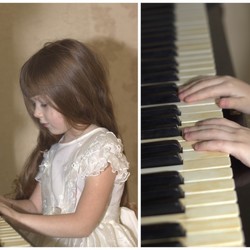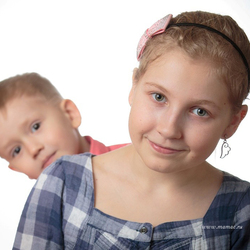The musical education of the child at home and at school. Advice for parents and educators
 There is no person who does not like music. Each of us has our favorite works that we want to listen and perform. Musical taste and understanding of music is formed since childhood, which is why it is very important what kind of music your child will listen and perform. The little musician, starting his acquaintance with music from simple melodies, will gradually find himself on the path that will lead him to become acquainted with the best works of classical composers, romantics, and impressionists.
There is no person who does not like music. Each of us has our favorite works that we want to listen and perform. Musical taste and understanding of music is formed since childhood, which is why it is very important what kind of music your child will listen and perform. The little musician, starting his acquaintance with music from simple melodies, will gradually find himself on the path that will lead him to become acquainted with the best works of classical composers, romantics, and impressionists.
Impact of music on the human brain
Studies have shown that when listening to music in the human brain there is an activation of the zones responsible for speech perception and processing. That is, listening to music, our brain reacts to it as it would react to a conversation or conversation, so music, like human words, can affect our brain in a certain way. However, if in words the meaning is always clear to the listener, then the effect of music occurs at a different level, not accessible to awareness. The main reason for the possibility of music influence on a person is its direct impact on the biorhythms of the brain.
The beneficial effect of music on the child
Listening to music with “favorable” alpha rhythms, we get the opportunity not only to improve the mood, but also to promote the development of various centers of the brain. Studies have shown that regular listening to music, which causes positive emotions, improves memory and the work of speech centers.
No less important are the lessons on the history of music, because they not only immerse children in a special, musical world, developing them, but also shape their taste and ability to distinguish real music from all that musical variety that sounds from all sides.
Music awakens a huge amount of feelings and thoughts. The process of listening to and studying musical works contributes to the fact that children begin to feel and think more deeply.
Listening to music, the child learns:
Feel;
Understand and think figuratively and creatively, as well as analyze information;
Express what felt and understood.
You can distinguish between passive and active listening to music:
Passive: I listen with pleasure, but I do not think that it is so special.
Active: I listen, I follow the sounds, analyze a huge number of lines enclosed in the work, synthesize information.
Experts recommend at the first classes of music to look for a “musical” picture. This music is easy to imagine and draw. Bright, figurative music is chosen, as it is typical for children of this age: figurative thinking, figurative memory, the ability to get used to images.
Pitch Children’s music education
The first property that is being studied is the pitch of the sound. Listening to the recording of birds singing, you can find out whether all singing birds are adults or are there chicks among them? Can this be heard? After the child independently comes to the conclusion that chicks have high voices, it is possible to engage in the expansion of the vocal range and the development of expressive reading. To do this, you can draw wavy lines in notebooks and voice transitions from low to high sound and vice versa
What is the dynamics. Children’s music education
The second property of sound is the power, the dynamics of its utterance. We draw a table of Italian terms (pp, p, mr, f, ff), with a voice we pronounce every designation, from the quietest (pp) to the loudest (ff).
What is fret? Children’s music education
The third property of sound is mode. Listening to music, we determine whether she is cheerful or sad. To consolidate all the properties studied, using the tale of the three bears, working on the voice of each bear. In such classes of music, the child learns the subtleties of communication, learns to listen not only himself but also others. Gradually begin to study the strokes. The study is carried out in several stages:
touch everything that surrounds us;
touch differently (gently, burning) depending on the nature of the surface; this is consonant with the topic of man’s perception of the world through his feelings, which are brought up in children in science lessons;
listen to different musical sounds in character (tender, harsh …);
pronounce the sound “o” (monotonously, intermittently, abruptly);
we depict the pronouncing of this sound “o” on the keys;
We come to a conclusion about three different touches: soft (legato), with breaks (non-legato) and actively – staccato (stacatto);
we conclude that the touch depends on the nature.
To consolidate the concept of “strokes”, we use the expressive pronunciation of these words (legato … staccato), as well as movements to music:
Slip on legato in waltz;
We march – non legato;
We jump in polka – staccato.
Rhythm and tempo. Children’s music education
The next stage of the study is rhythm and tempo. We get acquainted with these concepts not from formulations, but from suggestive exercises:
we pronounce our name with the child, defining stressed and unstressed syllables;
prohlopyvay and provozharivaem;
we clap, lingering on the stressed syllable;
marching and exhausting rhythm.



